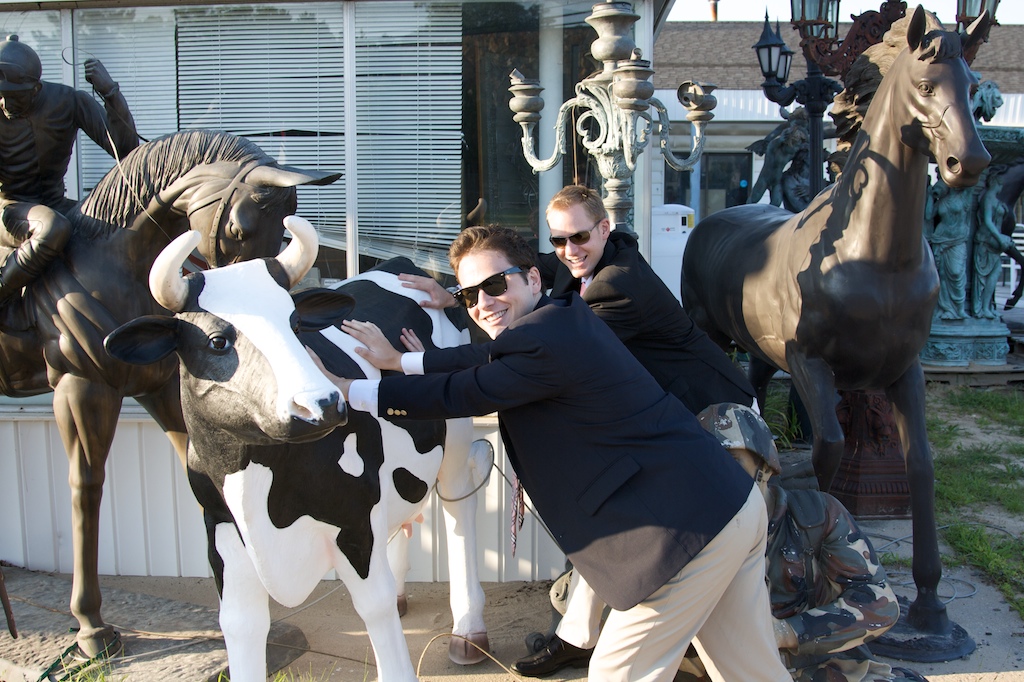By Ashley Mussbacher (The Cascade) – Email
Print Edition: May 7, 2014

If you’ve ever been to the Canadian prairies, you’re probably familiar with the rolling landscape, the dirt roads, the sudden and extreme changes in weather, and the stereotypes of the people who inhabit that mountain-less space.
One of those stereotypes is the belief that the people who live in places like “middle-of-nowhere” Saskatchewan or Manitoba have nothing to do; they drive slowly, they’re laid back, they eat pieces of wheat from the root and not the flower (which makes no sense at all), and on Saturday nights they go out drunk to tip cows.
Tip cows? First off, whoever came up with that story must never have seen a cow in real life. They’re huge.
In 2005, a study led by zoologist Margo Lillie from the University of British Colombia concluded that it would take a force of 2,910 newtons to push over a one-ton cow. That kind of force would take two to four people, and it would require that the cow did not adjust its footing to stop itself from falling.
If you’ve ever been around a cow, you know it’s difficult to sneak up on them. They have an excellent sense of hearing and smell. Also, cows don’t sleep standing, and they are very capable of getting up off the ground. Which means cow-tipping would be pointless.
But customers who tip service workers are quickly turning into a myth.
If you’re unfamiliar with the term “tipping a service worker,” I don’t mean sneaking up on a waiter and pushing him over. Tipping is another word to describe when a customer pays a gratuity.
For years tipping has remained optional, the amount up to the customer’s discretion. Recently, however, some companies have instituted a mandatory gratuity charge, at 20 per cent of the bill amount.
I have a few issues with this. While it’s true most customers, like cows, don’t tip, the very term “mandatory tipping” is an oxymoron. Tipping is, and should remain, a voluntary act. Employers should encourage their workers to uphold a standard of service by not only paying the worker a decent wage (not subsidizing it with a mandatory gratuity), but by allowing them to earn that extra bit of cash from the customer.
It also raises the question of how much of that mandatory gratuity is actually making into the service worker’s hand and not into their employer’s pocket.
That’s the nice thing about cash. You can hand it directly to the worker and know it went to them, and not through a third party who will probably skim the cream from the top.
But what if you have to pay a mandatory tip for bad service?
I was once eating out at a restaurant when a waitress came up to my table and said that I had to leave, because people were waiting and she needed the table. I had barely finished my meal. Did I tip her? Hell no.
A mandatory gratuity assumes every worker is giving the best service possible and every customer is leaving happy. That’s a total pipe dream. Even in the best situations, you’re going to have that one person who cannot be pleased no matter what. Their waiter could travel to Costa Rica for the beans in their coffee and they would complain about the strength. On the flip side of that coin, you could be the most easy-going customer in the world, yet have a waiter tell you to leave your table because you’re taking up space.
The whole crux of the matter is mandatory tipping doesn’t allow the customer the choice to either increase or decrease the amount based on how they feel the service was. It’s an employer’s solution to non-tipping customers, but for those who do tip, it throws a wrench into the system.


